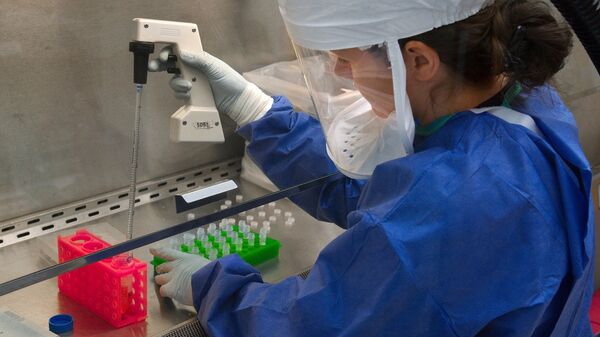MOSCOW (Sputnik) — Western sanctions do not apply to Russia's cooperation with other countries in the field of science, except for "particularly sensitive issues," like the national laboratories of the United States, the new president of the Russian Academy of Sciences, Alexander Sergeev, told Sputnik on Friday.
"No, they do not apply, maybe except for particularly sensitive issues, such as the national labs of the US Department of Energy," Sergeev said.
Most countries generally understand that there is no need to impose sanctions on research activities, he noted.
"Science and culture should be left out of the sanctions, these are 'bridges' for cooperation that strengthen ties between countries. It is the important function of the Russian Academy of Sciences. No one has ever, even in the past four years, suspended its authority and duty to engage in international activities," Sergeev added.
While speaking about the scientific cooperation with Ukraine, Sergeev noted that it remained in place, despite the fact that the cooperation had been complicated by bilateral relations with Kiev introducing sanctions against the scientists who visit science institutes in Crimea.
"The cooperation exists, but it is complicated by the very difficult relations between the countries," he said.
According to Sergeev, scientific institutes in Crimea used to belong to National Academy of Sciences of Ukraine but now belong to Russia’s Federal Agency for Scientific Organizations.
"It is clear that difficulties arise here as well, linked to, for example, us holding some events in Crimea, on the basis of these institutes, then in a number of instances Ukrainian sanctions follow for the scientists who came there, as well as for the cultural figures," Sergeev said.
Russian science could boost its role in the world with large research projects being implemented in the country, these could also reverse the "brain drain," Sergeev added.
"Russia could substantially boost its international presence if such large-scale projects were carried out here, and scientists from abroad would come to our unique facilities, then the whole scientific world would know that Russia has first-class science. In some sense, this would be a reversal of the ‘brain drain’ in our direction," Sergeev said.


